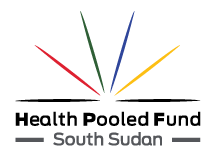International Day for the Elimination of Sexual Violence in Conflict: Health Pooled Fund 2021

In situations of armed conflict, women and children especially girls are often predisposed to harm which may also include physical and sexual violence. Since 2015, 19 June has been a day to condemn and call for the end of conflict-related sexual violence, including rape, sexual slavery, enforced prostitution, forced pregnancy and enforced sterilisation and honour victims, survivors and those fighting to end these most terrorizing and destructive of crimes.
Some progress has been made but numerous challenges still hamper the security and safety of communities especially the most vulnerable members including women and children. According to the 2020 United Nations Security Council Report on conflict related sexual violence, citizens of South Sudan are still heavily affected by acts of sexual violence. These acts of gender-based violence are often perpetrated by armed groups, and rival community-based militias.
Gender based violence has always been underreported. The underreporting is further exacerbated in conflict situations due to stigma, insecurity, fear of reprisals, and lack of services. Some of the challenges that women and girls faced in the past year were compounded further by the Covid19 pandemic resulting in heightened risk for sexual violence, exploitation and trafficking. According to the UN Security Council report, the pandemic impeded on prevention, protection and treatment services efforts within the various states.
As Health Pooled Fund adapted its programming during the pandemic period, efforts were put in place to ensure that survivors of gender-based violence got the most appropriate care at their nearest health facility. The programme continued to build the capacity is health workers and provide appropriate medication and counselling as need dictated.
Out of the 797 health facilities supported by HPF, 434 had their staff trained to manage sexual and gender-based violence using the World Health Organisation and Ministry of Health guidelines. HPF also improved the tracking of the number of gender based violence cases managed at the HPF-supported health facilities with the help of the revised District Health Information Software register which resulted in a total of 3,575 (2,520 male and 1,055 female) cases recorded.
This achievement is attributed to the availability of trained health workers to respond and manage clinical management of rape survivors including dissemination of the contextualised Ministry of Health Clinical Management of Rape guidelines to all the 797 supported health facilities, including improved patient triage where survivors of gender based violence are priority to access health care services including intensified community sensitisation on available services.
Conflict-related sexual violence exacts an unspeakable toll on a survivor, who is most likely to be a civilian and not a combatant. Even if hostilities cease, the scars are lasting. Sexual violence in conflict also threatens public health, security and peacebuilding. The costs of war are great; the cost of war against women and girls is incalculable.
As communities in South Sudan work to get back to normal past the pandemic, it will be vital to ensure that there are systems to support survivors of conflict-related sexual violence in the context of pandemic recovery. HPF will continue to work with the State and National Ministries of Health, implementing partners and communities to raise awareness of the negative impact that violence and abuse have on communities especially women and children.
